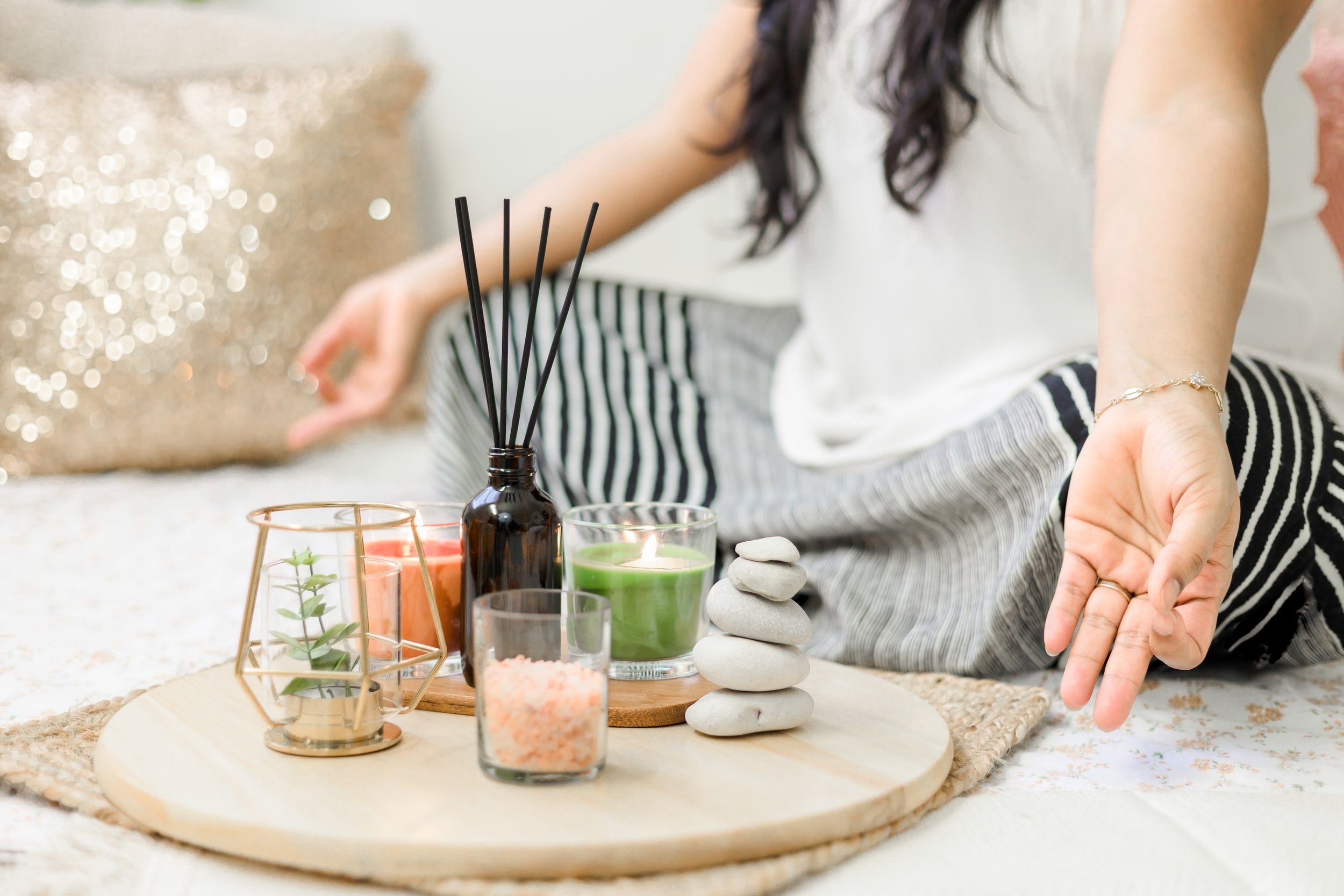How to let go of anxiety when your mind is catastrophising
Words by Richard Brook
Something we often forget about is that Mindfulness isn’t just a therapeutic practice that helps alleviate anxiety within the confines of our body and mind. It’s also a tremendous tool to help us become conscious of difficulties that might be arising from our lifestyle choices too, and check if it’s our relationship with the bigger body of life we are also part of that is actually the root cause of the problem.
So when we are catastrophising, we have to spread our mindful capacity over a few areas of both our ‘inner’ and ‘outer’ world to bring ourselves back to balance, and we have a number of things we can do:
Use our own psychological tools and inner resources
-
Engage practices to help calm the nervous system
-
Engage resources around us
-
Explore the root cause of the anxiety and catastrophising
Psychological Tools and Inner Resources
When we are catastrophising we often forget how many other times in our life we’ve faced and overcome similar issues. One of your best resources in these times can actually be the ups and downs you’ve previously experienced as they build perspective. Remind yourself that you’ve overcome obstacles before, perhaps left a job or relationship, or had periods of stress and the previous experience actually leaves you better equipped to face your challenges now.
Practices to Calm the Nervous System
Classic mindfulness techniques help calm the nervous system which in turn helps relax the mind. This brings you back to the present moment and drops you out of ‘survival’ or ‘I have to get this done or else!’ modes which are a signature of catastrophizing.
Two of the most common techniques are scanning your attention through your body, or observing the breath, but you can also broaden this out to listening to soothing sounds or invoking an inner sense of loving-kindness which calms the Heart and brings a sense of wellbeing. I’m also a fan of more ‘active’ techniques as it can be difficult to come to a sudden halt and observe oneself when there is a great deal of turmoil inside.
Conscious dance and movement practices (such as 5Rhythms dance) can be very helpful as the movement helps to dispel pent up emotions which leaves the mind clearer, similarly, with yoga, mindful walking and to various degrees exercise generally.
Exercise, breathing techniques and mindfulness techniques can also help to repair parts of the brain which can be injured by excessive cortisol production which is associated with anxiety and stress too.
Heading out into nature or simply physically removing yourself from the ‘energy field’ or close proximity of the source of stress can also be helpful because disturbances ‘hang in the atmosphere’ of where they occur. Taking a shower can also be helpful as it helps remove discordant ‘energy’ from the body, and it’s a good idea to avoid stimulants too!
These practices help to calm the mind and become more present to our surroundings but they also have the benefit of helping us to come closer to our ‘inner wisdom’ and creative impulses (see 4 below) which can also be obscured when we are anxious.
External Resources Around You
Be mindful of the help and support that can be offered by natural health therapists, friends, family and people in similar situations. Having a therapist’s or practitioner’s number in your phone is essential in case of an anxiety emergency! Also, don’t forget the importance of touch as a relaxation aid - nothing beats a good hug - and also consider receiving a massage regularly too.
Exploring the root cause
While all the above points are helpful you also need to be careful to avoid what I call the ‘antidote syndrome’. This is where we are constantly trying to fix ourselves through therapeutic means when what is broken is our relationship with an aspect of our life.
This brings us to the big one, being mindful of our relationship with the world around us – are you in the right place, doing the right thing at the right time in the right way? Understanding the importance of our life choices can be one of the biggest oversights we have when we first start to consciously evolve, as we can become too oriented with looking ‘inside’ without seeing where our life choices are out of harmony.
Look at whether your rest and activity are balanced and whether you are living in tune with the seasons, and crucially, are you doing what you love? When you aren’t doing occupations that you care about then your nervous system is often in disarray with an ‘existential’ tension in the mind. So be conscious that your occupations fit your passions, inner wisdom and intuitively provide a feel-good factor that relaxes your heart.
Then you’ll really crack the feel-good code!
Richard Brook is a holistic expert, wellness coach and founder of Creative Wellness. His new book, Understanding Human Nature: A User’s Guide to Life, is published by Matador, priced at £12.99.



